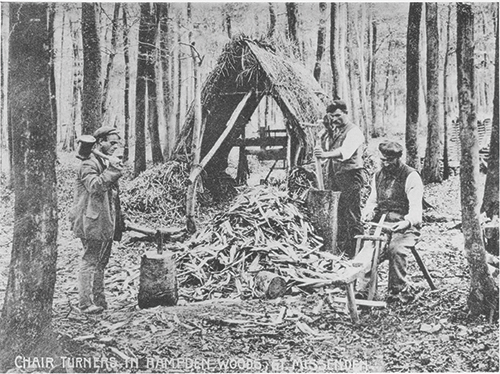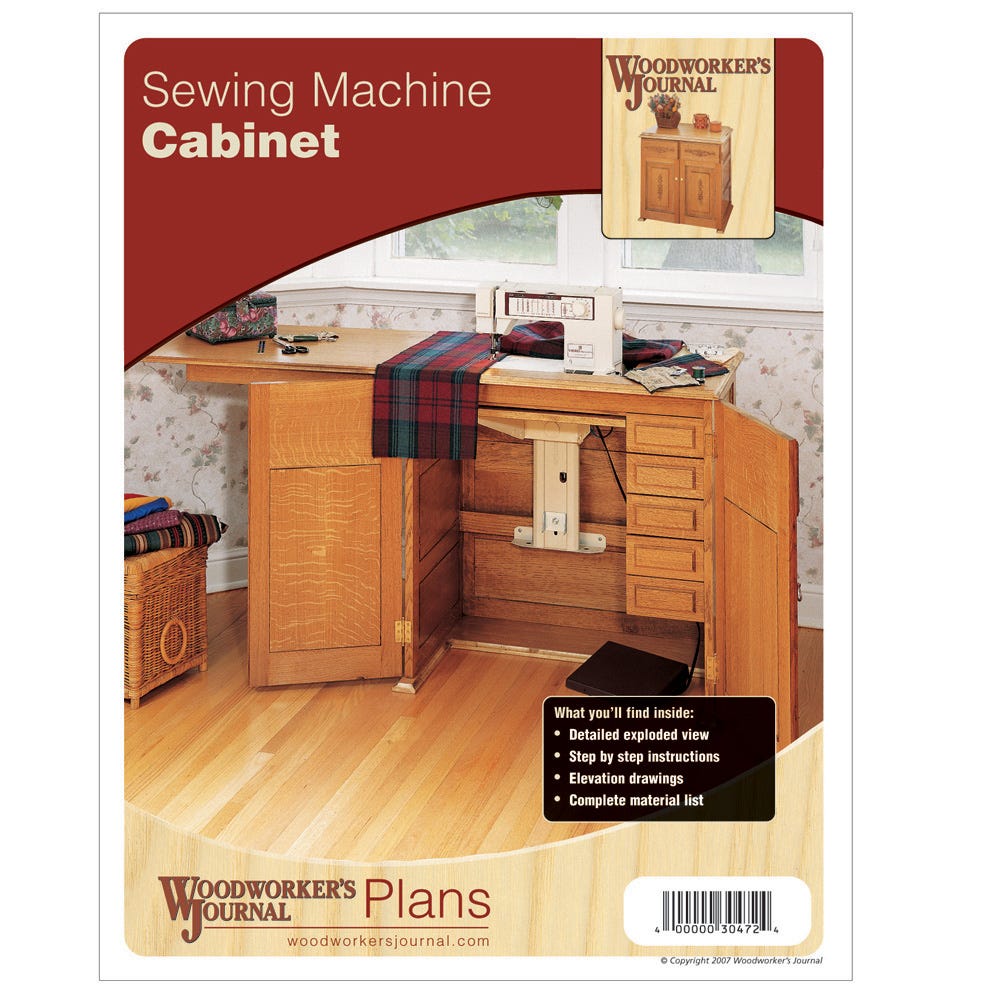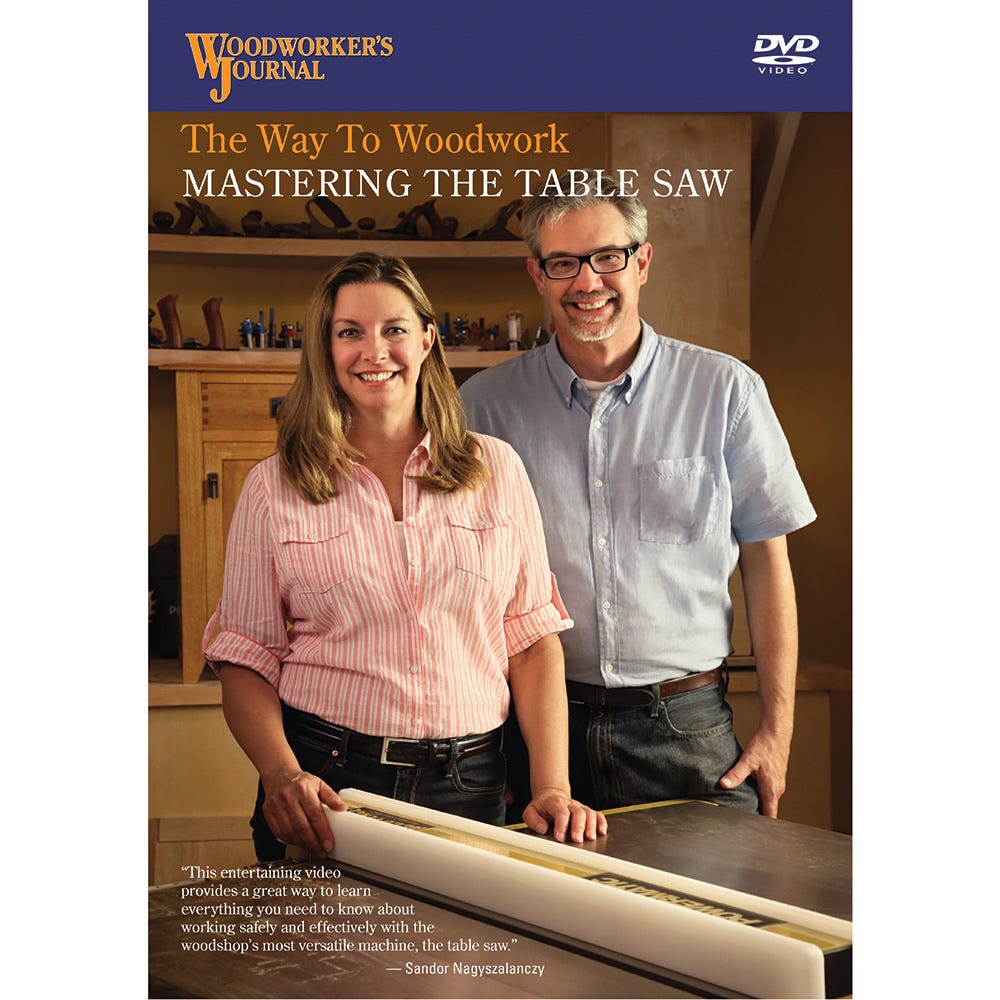
Looking back, I think it was the noise that kept me out of the profession, out of the craft, even out of the garage as much as possible. Always, there was the sinister whining of the circular saw ripping through a never-ending sheet of plywood; the deafening roar of a router, its volume completely disproportionate to the amount of cutting and carving going on around the edge of a cabinet door.
I suppose drills were benign, by comparison. But invariably, toward the end of a job, the sanders were brought out, and with them their dull and relentless moaning, so abrasive and caustic to the ears.
Of course, this is to say nothing of my lack of skill and talent in woodworking, in carpentry. I suppose I could have stuck it out inside the garage, on those moonlighting jobs with my dad. But how could I learn and improve when the noises of these machines served only to drive me away•away from a profession that my family, alone, seemed to have cut and crafted?
My grandfather came by carpentry honestly, for his father was a carpenter. I worked a few jobs with him, my want of money outweighing my aversion to the noise of the aforementioned power-tool quartet. I remember the smell of sawdust and sweat; the sight of his massive hands, fingers as big as cigars gripping sheets of plywood, impervious to splinters, guiding the saw that would divide these sheets in two; the sound of a cracking beer can after the job was finished. I was only the clean-up crew, but on the job site, you can’t hide from the power-tool experience.
Then there was my father, who worked days as the supervisor of a carpenter shop, and moonlighted evenings to make ends meet. On occasion, he’d make a bookshelf for the living room, a small chest for my mother’s cake-decorating kit, or a miniature table-and-chair set for my kid sister. I wanted only to avoid my father when he was working, as there always seemed to be a tool I could retrieve for him, an extension cord I could plug in, thus further subjecting me to the cacophonies of the craft I was not cut-out for.
Often, from my bedroom, I could hear the saw hissing and biting into a sheet of cedar or pine; the surplus piece of wood falling to the floor, clanking; sheets of wood slapping one another, being fitted into place, being sanded.
Fortunately, as I aged, my kid brother began to inherit the tasks of retrieving tools, plugging in extension cords. And he didn’t mind. In fact, he’d stand there next to my father, absorbing the experience, only to duplicate it, himself, some years later.
 “Where did you learn to make a bookshelf like that?” somebody would say. My brother’s reply was always the same: “I watched my dad do it.”
“Where did you learn to make a bookshelf like that?” somebody would say. My brother’s reply was always the same: “I watched my dad do it.”
But what he didn’t mention was that he had to see it done only once.
Consequently, it’s no surprise that my brother has found his way into the business. He runs his own cabinetry and trim company, has his own tools, the sounds of which never seem to bother him. He’s a big burly guy with muscular shoulders and arms. Though there is no cracking of beer cans after jobs, the cab of his pickup smells of sawdust and his cell phone beeps constantly with calls from contractors wanting my brother to come and trim out a kitchen.
Between jobs, there is also a pair of earplugs and safety glasses hanging from the rearview mirror.
I realize now that even if these safety items had been an option for me, growing up among a family of old-school woodworkers, I still wouldn’t have made it in this business. After all, I hadn’t the aptitude, nor the talent, for creating objects of lasting value from wood.
Curiously, however, this exposure to the woodworking profession wasn’t all lost on me. In fact, I am a great admirer of quality craftsmanship. Shopping for furniture, I inspect the dovetailed drawers, noting with admiration how precisely the joints fit together. I see a beautiful oak bookcase and marvel at its understated elegance and design.
I know for a fact that I couldn’t have produced these creations, which makes me appreciate them, and the skill that went into making them, that much more.
-John Gifford







